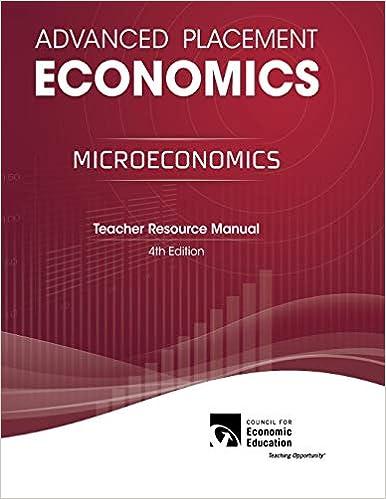Question
6. _____________ says that a new industry (especially in less developed countries) needs protection until it attains a competitive level of cost (and output) in
6. _____________ says that a new industry (especially in less developed countries) needs protection until it attains a competitive level of cost (and output) in world markets.
a. The infant-industry argument b. The national defense argument c. The infant-government argument d. The nationally optimal tariff argument
7. Intra-industry trade can be explained by:
a. The Ricardo trade theory b. The H-O trade theory c. Product differentiation and consumers' preference for variety. d. Protective measures taken by the trading nations
8. _____________ says that imposing a tariff may lead to an improvement of a country's terms of trade and welfare.
a. The infant-industry argument b. The national defense argument c. The infant-government argument d. The nationally optimal tariff argument Trade theories 35 The Heckscher-Ohlin (H-O) Model Effects of Trade on Welfare X Y A B Country 1 Y before trade X P P 1, 1 World Y X P P C D O 600 800 400 600 700 3
9. If Japan's export prices go down and import prices go up as a result of currency depreciation, Japan's terms of trade
a. Improve. b. Deteriorate. c. Remain unchanged. d. Are uncertain.
10. According to the mercantilist view of international trade,
a. Trade is mutually beneficial. b. Import and export are equally important. c. Export is better than import. d. Countries should not trade at all.
11. Refer to the following information and answer the question based on the Ricardo model: U.S. U.K. Wheat (bushels/labor hour) 100 40 Cloth (yards/labor hour) 150 30 The U.S. has comparative advantage in:
a. Cloth. b. Wheat. c. Both Wheat and Cloth. d. Neither product
12. Most favored nations (MFN) treatment basically means:
a. Granting first and most favorable treatment to a nation or nations that other nations do not generally get. b. Granting special privileges and concessions to a particular nation that are not enjoyed by any other nations. c. Extending to any trading partner with MFN status the same privileges and concessions that have been granted in negotiations to any other trade partner. d. Treating some countries with special privilege while discriminating against others.
Step by Step Solution
There are 3 Steps involved in it
Step: 1

Get Instant Access to Expert-Tailored Solutions
See step-by-step solutions with expert insights and AI powered tools for academic success
Step: 2

Step: 3

Ace Your Homework with AI
Get the answers you need in no time with our AI-driven, step-by-step assistance
Get Started


